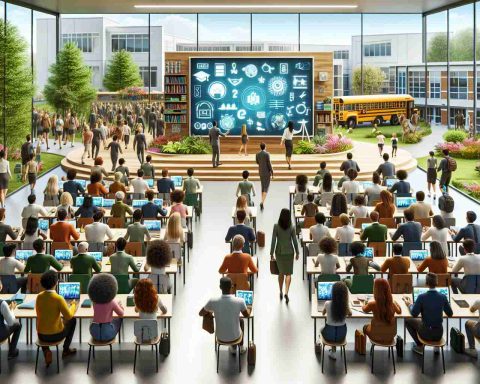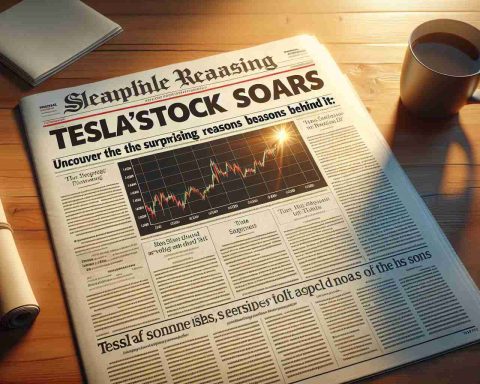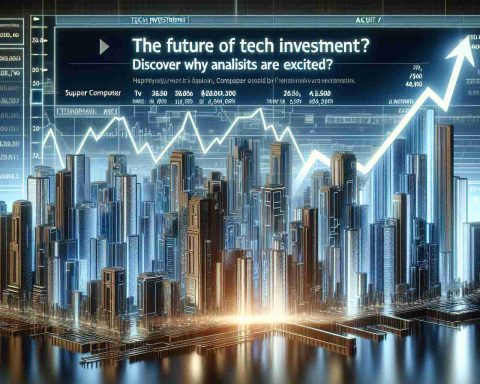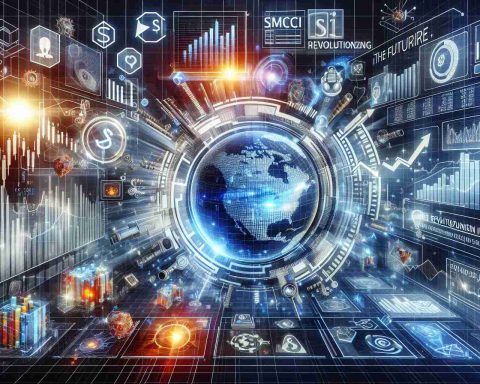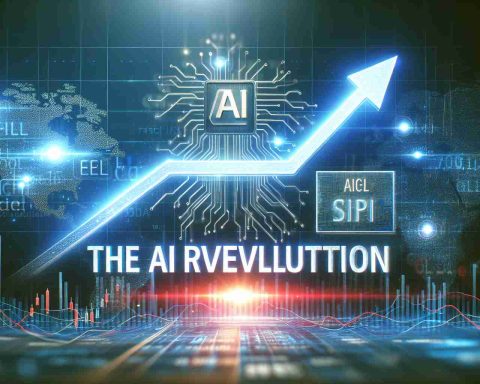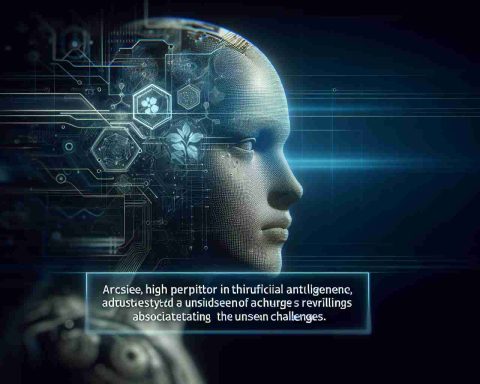Beyond Gaming: Intel’s Technological Journey Impacts Everyday Life
Intel’s recent advancements are setting the stage for transformative impacts that extend beyond the gaming world. By harnessing the power of cloud and edge computing to slash latency, these innovations promise far-reaching benefits critical for real-time applications in diverse sectors such as healthcare, finance, and autonomous vehicles. In these fields, where both speed and accuracy are vital, rapid data processing and decision-making enhancements could revolutionize services like remote surgeries and high-frequency stock market trades, where every millisecond counts.
The integration of quantum computing into Intel’s portfolio further expands its reach, enabling computations far beyond the capacity of traditional machines. This leap could redefine industries like cryptography and logistical planning but also introduces ethical challenges. For instance, with the potential to decrypt existing security frameworks, quantum technology necessitates stringent regulatory frameworks to mitigate risks to global digital security.
Advantages and Drawbacks
On the positive side, Intel’s developments herald a new era of interconnected smart cities, with reduced traffic congestion via real-time data analytics and a surge in AI-driven innovations that can alleviate a wide array of human challenges. Nevertheless, the advances also pose a risk of exacerbating the digital divide. As technology progresses, certain groups could be left behind unless initiatives are implemented to promote inclusive tech upskilling.
Questions to Ponder
As we venture into this tech-rich future, key questions emerge: How will societies adapt to these changes? What strategies are needed to protect against job losses as automation increases? Explore Intel and IBM’s technological contributions to envision a future where gaming innovations enrich daily life, merging imagination with essential functionality.
Harnessing Intel’s Technological Advancements: Implications for the Environment and Society
Intel’s recent technological strides are not just a boon for the gaming industry but are poised to reshape our world in myriad ways. With significant advancements in cloud and edge computing, quantum computing, and AI-driven innovations, the impacts of these technologies reach deep into sectors pivotal to the functioning of society. One area witnessing profound effects is the environment, where these developments stand to yield both promising opportunities and daunting challenges.
Environmental Impacts
The rollout of Intel’s technologies, particularly in processing power and real-time data analytics, opens new horizons for addressing environmental concerns. Smart cities, born of interconnected devices enabled by these computing advances, offer a vision of urban environments optimized for minimal ecological impact. Real-time data analysis can drastically reduce energy consumption, manage waste more effectively, and mitigate traffic congestion through intelligent transportation systems, thus reducing greenhouse gas emissions.
Quantum computing holds the potential for exponential leaps in simulations, allowing researchers to model complex environmental systems with unprecedented precision. This capability could lead to breakthroughs in climate science, renewable energy technologies, and ecosystem management. However, the sustainability of these technologies depends heavily on how their energy demands are addressed. The computing power that enables such transformative possibilities also risks increasing energy consumption if not managed with efficiency and renewable sources in mind.
Societal Impacts
Humanity stands at a crossroads where technological evolution impacts social and economic structures significantly. Intel’s advancements are likely to drive enhanced healthcare solutions, improve efficiencies in logistics, and fortify cybersecurity frameworks. But as these innovations progress, they threaten to widen the digital divide if access is not made equitable. Disparities in technology accessibility can lead to segments of the population being left behind, unable to benefit or compete in the evolving digital economy.
Moreover, the rise of automation and AI-driven systems, while improving efficiency, could lead to significant disruptions in the labor market. The necessity for strategic workforce retraining and upskilling initiatives becomes apparent to mitigate the risk of widespread job obsolescence.
Future Connections
Looking ahead, Intel’s technological journey signals a future where seamless integration of these innovations could forge a more sustainable and equitable world. The alignment of technology and environmental stewardship could spearhead a new era where smart infrastructure and green technologies coexist, enhancing the quality of life while addressing pressing ecological challenges.
In considering these shifts, societies are called to deliberate on frameworks to ensure that technological progress supports broad human welfare. Crafting inclusive policies, fostering education in emerging technologies, and encouraging ethical regulations will be vital to harness these advancements for the collective good. When aligned with humanity’s overarching goals, Intel’s innovations could indeed forge a future where technological prowess and the preservation of the planet walk hand in hand.
How Intel’s Cutting-Edge Technologies are Shaping Tomorrow’s World
Intel is not just revolutionizing the gaming industry but is also leveraging its technological breakthroughs to profoundly impact various aspects of daily life. From healthcare to finance and autonomous vehicles, Intel’s advancements in cloud and edge computing are paving the way for real-time applications that demand both speed and precision. The company’s latest ventures could drive substantial progress in how services like remote surgeries and high-frequency stock trading are conducted, where every millisecond can have significant consequences.
Quantum Computing’s Promise and Peril
An exciting frontier for Intel is its investment in quantum computing, which has the potential to catalyze transformative changes across multiple sectors. By performing computations that are simply unattainable for classical computers, quantum computing could revolutionize industries such as cryptography and logistics. However, this also introduces significant ethical and security challenges. With the ability to crack existing encryption systems, there is an urgent need for a regulatory framework that secures global digital safety while allowing innovation to flourish.
Discover the Opportunities and Challenges
The forward march of Intel’s technology brings with it a host of benefits and challenges. On one hand, we see the prospect of interconnected smart cities becoming a reality, easing traffic congestion and spurring AI-driven innovations that can address complex human challenges. On the other hand, these rapid advancements threaten to widen the digital divide, raising concerns about inclusivity and the need for initiatives that foster widespread tech literacy.
Navigating a Tech-Enriched Future
As these technologies transform our world, society must consider several pressing questions. How will we adapt to these changes, and what new strategies are essential to safeguard jobs in an increasingly automated world? Intel and other leading tech firms like IBM are pivotal in this evolution, providing insights into how gaming technologies can seamlessly integrate into everyday life, enriching it with both imagination and crucial functionality.
The Road Ahead for Intel
Intel’s journey is one of continuous innovation, promising not only to redefine industries but also to shape a more interconnected and efficient world. As more sectors embrace these technologies, the potential for significant societal shifts grows, adding complexity to how we navigate ethical considerations and regulatory landscapes in digital advancements.
By focusing on fostering inclusiveness and addressing the potential ethical challenges head-on, Intel’s technological breakthroughs will not only transform industries but can also positively contribute to a smarter, more sustainable future.




